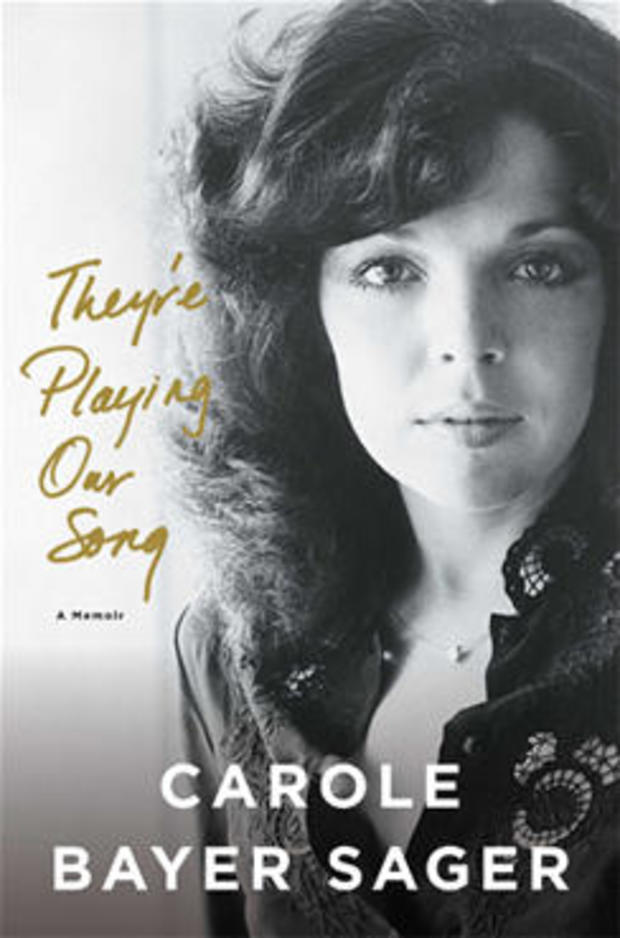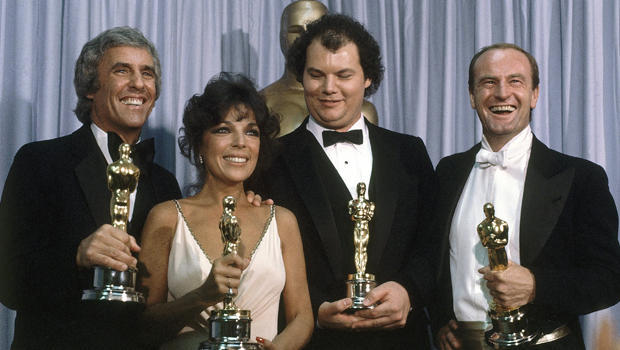Carole Bayer Sager on creating the hit theme from “Arthur”
In this excerpt from her new memoir, “They’re Playing Our Song,” the lyricist describes what went into conjuring an Oscar-winning tune with her collaborator, Burt Bacharach:
So, we were writing together, and now we were living together. My friend Arnold Stieffel, who was then at ICM (and has managed Rod Stewart since the mid-Eighties), thought that getting Burt a movie to score would be the best way to kick-start his comeback, and he hit a home run in his first at-bat. He came up with “Arthur,” starring Dudley Moore, Liza Minnelli (Peter Allen’s ex), and John Gielgud.
The director wanted a song to play over the opening scene, which is a songwriter’s dream, because when it plays over the end credits, half the audience is already walking out. Burt and I watched the scene over and over on a small monitor in our living room. He was trying out lots of melody ideas as I was trying to think of words that felt right for the scene. In my mind I kept hearing the words to a not very good song that I had written years earlier with Peter Allen, called “The Moon and New York City.”
The title came from one night when Peter was flying to New York from L.A. and his plane got stuck in a holding pattern, circling around and around. He pulled out his notebook and wrote, “When you get caught between the moon and New York City, you might as well fall in love.” We wrote the song and, not long after, filed it under “things that will never get recorded because they really weren’t good enough.” The lyric was better than the melody, which had no hook at all, and we never put in the time to rework the song.
I said to Burt, “There’s an unpublished song I wrote with Peter Allen that I keep hearing a part of whenever I watch Arthur drive around the city in his limousine.” I told him the line and it inspired him to write a melody for it. “When you get caught between the moon and New York City…” I added another line from the original -- “I know it’s crazy but it’s true” -- which led Burt to another musical line, and very soon -- for him, certainly -- he had the whole chorus melody finished. All I did was add, “The best that you can do, the best that you can do, is fall in love”
“You know, Burt,” I said, “I’m going to have to call Peter and ask him if it’s okay with him to use this lyric.”
“Why?” he asked. “It was from an unpublished song and it’s your lyric.”
I explained that it was actually Peter’s line and related the story.
“Well, call him,” he said, “but, uh, I’m sure he’s going to say just use it. He’s not going to want credit for one line.”
“Of course I want credit,” Peter said when I called him. “For a song that could win an Oscar?” His position seemed fair to me. I mean, it was going to be the beginning of the chorus, heard more than any other line in the song. I’d have wanted credit, too. I suggested he come and help write the rest of the song with us. He agreed but said he couldn’t come for another week. Within two days Burt had found his way to the verse melody, and I’d written the first verse. All I needed to do was find an original way to serve the film -- without, in this case, ever getting ahead of the story, since the song would play over the opening credits.
Meanwhile, Christopher Cross had just won five Grammy Awards for his debut album and Warner Brothers wanted him to sing our song. He came over and we played it for him. He loved it but wanted to hear the second verse. Since we didn’t have those lyrics yet, he and I wrote them in what seemed like a minute, and the whole song was finished in that same afternoon.
Well, of course he deserved a writing credit, too. Burt could understand Christopher’s claim, but he was still resentful of Peter, who never had a chance to come up and collaborate. I pointed out that his was far more than an incidental line. Even though we called the song “Arthur’s Theme (The Best That You Can Do),” I told Burt, “To many, it will be known as, ‘The Moon and New York City.’”
So when Bette Midler, reading off the nominees at the 1982 Academy Awards, got to our song, she announced, “’Arthur’s Theme,’ also known as ‘The Best That You Can Do,’ or that song about the Moon and New York City, or, as I call it ‘four on a song.’” (It was unusual to have four writers collaborating on one song). Moments later, she read off our four names and we all stormed the stage.
Of course I would have preferred it if Burt and I were up there alone, but it was still a thrilling night. The unfortunate outcome was that Burt’s resentment put a temporary wedge in my relationship with Peter.
From “They’re Playing Our Song: A Memoir” by Carole Bayer Sager, published by Simon & Schuster. Available in Hardcover, eBook and Unabridged Audio Download formats.
For more info:

